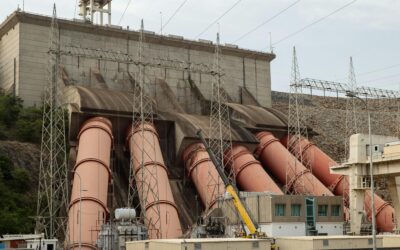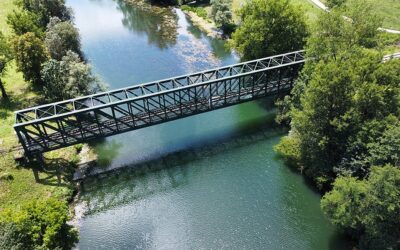The U.S. Department of Energy (DOE) has committed nuclear material to three research projects, including the nation’s first molten salt research reactor in Texas. The material, high-assay low-enriched uranium (HALEU), is not currently available to the domestic market and must be requested through DOE sources.
The DOE awarded the first amounts of HALEU to five companies earlier this year, three of which will see deliveries in 2025. This second round will go to three companies and educational institutions for research purposes. The DOE distributes the material through the HALEU Availability Program, launched in 2020 to secure domestic supply for research, development and eventual commercial use.
The three entities receiving HALEU include:
- Antares Nuclear Inc., which is developing an advanced microreactor targeting a criticality date of July 4, 2026, as part of the DOE Reactor Pilot Program.
- Standard Nuclear Inc., which is establishing TRISO fuel lines to support the Reactor Pilot Program and other similar reactors.
- Abilene Christian University/Natura Resources LLC, which is currently building a newly designed molten research reactor currently in Texas.
The Abilene Christian University (ACU) and Natura collaboration is unique, representing the nation’s first advanced reactor research facility outside of a national laboratory. The project stems from a research alliance formed in 2020 when Natura Resources LLC selected ACU to lead a $30.5 million effort involving four universities.
The Natura Resources Research Alliance includes ACU, Georgia Institute of Technology, Texas A&M University and the University of Texas at Austin. ACU received $21.5 million of the total funding, with the remainder distributed among the three other partner institutions. The alliance represents the largest sponsored research agreement in ACU’s history.
The Nuclear Regulatory Commission issued a construction permit to ACU in September 2024, marking the first liquid salt fueled reactor licensed by the NRC in American history and the first U.S. university research reactor approved in more than 30 years. The permit followed comprehensive environmental and safety reviews, with the environmental assessment finding no significant impact and the safety review confirming the reactor design meets federal regulations.
ACU’s reactor, dubbed the Natura MSR-1, represents a departure from traditional nuclear reactor design. Instead of using solid fuel rods, the 1-megawatt research reactor dissolves its nuclear fuel directly into a molten salt mixture.
This liquid fuel approach uses HALEU mixed with molten FLiBe salt (a combination of lithium fluoride and beryllium fluoride) that flows through the reactor system, carrying both the fuel and heat away from the reaction to be converted into energy. The reactor is being built at ACU’s Dillard Science and Engineering Research Center, a facility completed in August 2023 specifically to house advanced reactor research.
The building features a 6,000-square-foot research bay with specialized infrastructure including a deep shielded trench, a 40-ton crane for heavy equipment, specialized ventilation systems and enhanced electrical power capacity.
ACU and Natura Resources plan to submit their operating license application to the NRC in 2025, with reactor operations potentially beginning by late 2026. The current construction permit allows the team to build reactor infrastructure while preparing the operating license application.
The research reactor will eventually provide operational data critical for scaling molten salt technology to commercial applications. Natura Resources has outlined plans for 100-megawatt commercial systems, with the ACU demonstration serving as a stepping stone to larger deployments.
Photo by Kateryna Babaieva from Pexels







